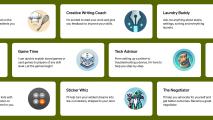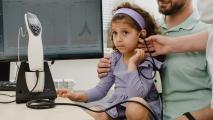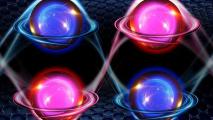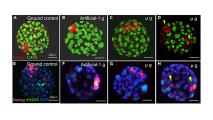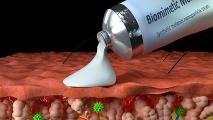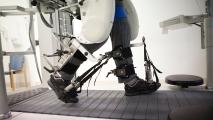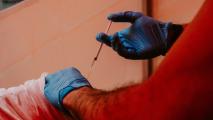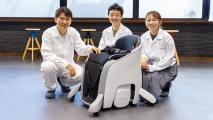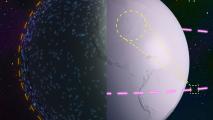
The Digital Frontier
Advancements in 20th century medicine reshaped society and made good health an expectation, not an exception. Now, 21st century breakthroughs may end disease, reverse aging, and restore sight and hearing — perhaps sooner than we think.
More
Spinal implant lets man with Parkinson’s walk again
An experimental spinal implant has given a French man with advanced Parkinson’s disease back his ability to walk.
OpenAI launches a GPT Store for customized AI chatbots (Updated)
ChatGPT users will soon be able to create, share, and potentially monetize customized versions of the chatbot through OpenAI’s GPT Store.
Explore JWST’s deepest views ever for yourself
If you want to observe the Universe more deeply than ever before, simply point your high-powered observatory at the same region of sky.
Memory champion explains how she memorizes 1,080 numbers in 30 minutes
Katie Kermode — a memory athlete with four world records — tells Big Think about her unique spin on an ancient technique to memorize unfathomably long lists of information.
“Iron Man” material made from DNA and glass is 4x stronger than steel
Using only DNA and glass, researchers made a material four times stronger and five times lighter than steel. It was inspired by Iron Man.
Mindfulness: New age craze or science-backed solution?
Research shows mindfulness can be an effective wellness practice, yet the effect sizes found in studies tend to be moderate.
Insomnia and mental disorders are linked, but exactly how is still a mystery
The relationship between insomnia and mental disorders is complex. It’s not just a case of “which comes first”?
New gene therapy reverses hearing loss in 4 children
A new gene therapy being trialed in China was able to reverse hearing loss in 4 of the 5 children to receive it.
From a five-layer graphene sandwich, a rare electronic state emerges
When stacked in layers in a rhombohedral pattern, graphene takes on a rare state that could advance powerful magnetic memory devices.
Mouse embryos grown in space for the first time
A mouse experiment on the International Space Station suggests humans might one day be able to reproduce in space.
New “super melanin” protects and heals skin
A “super-charged” synthetic melanin is even better at protecting the skin and healing damage than the natural kind.
The psychedelic DMT causes the brain to become hyperconnected, scans reveal
Researchers gave 20 healthy subjects potent, intravenous doses of the psychedelic DMT and observed their brains. Here’s what they found.
Capsaicin: Could the compound that gives chili peppers their heat treat diabetes and obesity?
Capsaicin, the compound that gives peppers their burn, could help with diabetes and obesity, but only at an uncomfortably high dose.
Japan sets new nuclear fusion record
A massive nuclear fusion experiment just hit a major milestone, potentially putting us a little closer to a future of limitless clean energy.
Gold-laced gel could help you recover from a major muscle injury
A combination of electrical stimulation and a gold nanoparticle-laced hydrogel could one day help people recover from major muscle injuries.
T-Minus: Stranded space drugs, a new moon lander, and more
Freethink’s weekly countdown of the biggest space news, featuring a stranded space factory, Jeff Bezos’ new moon lander, and more.
This AI companion could forever change how you feel about tech
Silicon Valley tech startup New Computer has unveiled Dot, an AI companion that could forever change our relationship with tech.
How AI played an instrumental role in making mRNA vaccines
Years before Moderna created an effective mRNA vaccine against COVID, the company put into place AI systems to accelerate the research process.
Honda unveils hands-free wheelchair you steer like a Segway
Honda Robotics has unveiled a prototype of the UNI-ONE, a hands-free wheelchair that you steer with your body weight.
Series|
Hard Reset
Starlink’s newest competitor is using next-gen satellites to create internet for everyone
Four billion people are not connected to the internet. This company wants to change that, using satellites in geostationary orbit.
Subscribe to the newsletter




